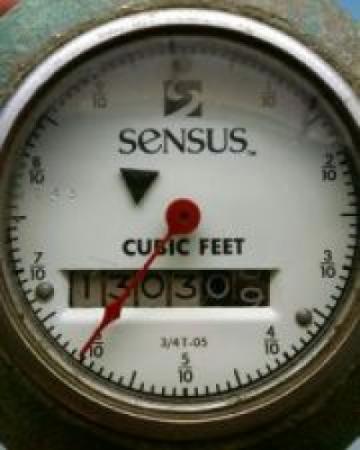Understanding Your Water Meter
Using Your Water Meter to Check for Leaks
The best way to determine if you have a leak in your plumbing system, is by first checking your water meter.
Watch this instructional video to learn how.
If you do not know where your meter is located you can call the City Water Utility at (206) 275-7602 to find out.
- First, make sure NO water is being used inside or outside of your house (faucets, shower, dishwasher, etc).
- Locate your water meter and check the leak indicator to see if it is moving. Depending on the brand of your meter, the leak indicator could be a small triangular black, white, or silver dial or a small silver wheel that rotates when water is flowing through the meter. If the dial is moving, you have a leak.
- Alternatively, you can also take a meter reading, wait 2 hours, then take another meter reading (make sure no water is used during this time). If the reading has changed, you have a leak.
After you have determined that you have a leak, the next step is to determine if the leak is inside or outside of your house.
- Locate your home's main shut-off valve and turn off the water at the valve. Typically, you will find the shut-off valve in the basement or garage directly behind an outdoor faucet, or outside, below an outdoor faucet.
- Again, check the leak indicator for movement or use the meter reading method, making sure not to use any water during this period. If the leak indicator stops moving or there is no change in the meter readings, then you have a leak inside of the house, most likely the toilet. If the leak indicator continues to move or there is a change in the meter readings, then the leak is outside between the meter and the house and you will need to call a plumber for help.
Learn More About Fixing Leaks
Household water leaks cost homeowners approximately 10 percent more on their water bill through problems such as worn-out toilet flappers, leaking valves, dripping faucets, and others. That can add up to over 10,000 gallons a year, per home!
The City's water utility staff ask that all residents do their part to avoid wasted water, and offers free dye strips to detect toilet leaks, available at the City Hall Utility Billing counter.
Learn more about the types of leaks and how to fix them, as well as preventing freezing damage, from these educational videos provided by Seattle Public Utility.
Learn About Other Ways to Conserve Water
Visit Saving Water Partnership
Keeping Clear Access to Your Water Meter

